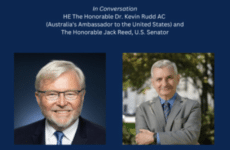Laura Montesanti | Staff Writer
It looks like another form of technology is just about to byte the dust….
According to a Pew Research Center report, more and more Americans are leaving their basic cell phones behind for their high tech counterparts. The attached Gallup poll asked the public about types of electronic devices in their lives. In 2005, 78 percent said they had basic phones. Fast forward to the present, that number dropped to 45 percent—a whole 33-point decrease compared to smart phone use today, which was reported as 62 percent.
For many faculty and students at Salve Regina University this was something to be expected in the fast paced world of a 21st century lifestyle. Director of User Support Services Brian McDonnell said he was hesitant to switch at first, but is now the proud owner of an iPhone.
“I was a reluctant adapter even being in the IT department…” McDonnell stated, “Once I adapted, I adapted forever.”
He explained that the poll only illustrated what he calls “Moore’s Law”. The law states that computers are expected to double in both performance and memory space every two years. This is something that McDonnell believed was part of the reason why Smart Phones advanced so rapidly in the last decade.
The same could be said for Secondary Ed and English major Marissa Ballard who had her own perspective on the trend. For members of her generation the cell phone was an addiction, “I’ve grown so used to all the advancements that I don’t think I could look back.” she said.
Her first encounter with smart phones began in 2006 with what was called the “Sidekick” mobile. This sparked Ballard’s love/hate relationship with cell phone. Despite living with them for so long, her smart phones have always fallen short, be it with low battery life or the constant freezing of applications. Nevertheless, for Ballard, multi-purpose convenience was something that made her return to the smart phone every time her plan was ready for an upgrade.
Ballard’s roommate, Sophomore Lauren Boyle, has been able to live happily with her more simplified Samsung keyboard phone. Boyle, a secondary education and English major, owned a flip phone for many years. It was only when her parents bought her a phone enabled with texting that she realized how much she had been missing.
By not allowing texting to become prevalent in her life, Boyle still feels she had control over study time instead of repeatedly wanting to check her phone. To her this is a bad habit that the majority of society seems to share. Boyle feels that she never took a liking to smart phones in general for being “definitely very flashy. And there’s a lot of things to them, especially with social network,” explained Boyle.
Cell phones: people can’t seem to live with them or without them. Nevertheless, only the future will tell what is in store for the most basic of push button phones and its users.














